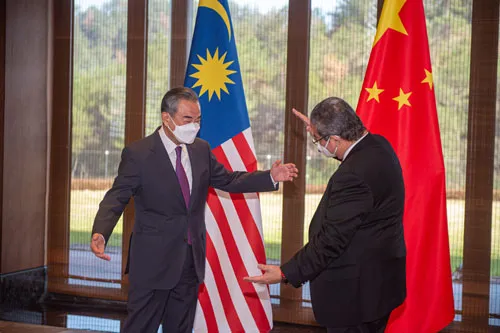China Dominates Global Semiconductor Patent Growth
China Dominates Global Semiconductor Patent Growth

According to semiconductor patent disclosures filed with the world’s five major intellectual property offices (IP5)—South Korea, the United States, China, Japan, and the European Union—China’s share of semiconductor patent applications has surged from 14% in 2003 to 71.7% in 2022.
In the past decade, China has obtained technical patents in the field of semiconductor components, as well as in the areas of older general semiconductors and cutting-edge semiconductors. From 2018 to 2022, China ranked first in the number of semiconductor patent applications filed with the IP5 (135,428 applications), far surpassing the United States, which ranked second with 87,573 applications.
To some extent, the sanctions launched by the United States against China in trade and technology have helped and promoted the development of China’s semiconductor industry. The increase in the number of semiconductor patents is beneficial for China to enhance its comprehensive strength in the semiconductor field and to strengthen its production capacity. Before 2018, China’s self-sufficiency rate in semiconductors was only 5%, but this figure reached 17% in 2022, and it is expected to reach 25% this year.
Chinese netizens have expressed that the development of China’s semiconductor industry is very rapid. The advancement of cutting-edge industries will promote high-quality employment and economic development. However, China still needs to strive to continuously break through top technologies.
Korean Fugitive Selling Drugs to High School Students Captured and Extradited by Chinese Police

On December 27, relying on Chinese police’s help, Korean authorities finally gained custody of a suspect accused of drugging and extorting high school students. Lee Jae-Cheon, a 26-year-old South Korean national, was extradited after being apprehended in China where he had sought refuge.
Lee, along with accomplices, devised a scheme in April of this year. They diluted methamphetamine (commonly referred to as “ice”) into beverages and deceived more than ten high school students into consuming them. Subsequently, they exploited the students’ drug use as leverage to threaten and extort money from their parents.
Lee was wanted by South Korean authorities on charges of providing drugs to minors and engaging in intentional extortion, leading to an Interpol red notice being issued for his arrest. Upon receiving a request from South Korea, China’s Ministry of Public Security deployed public security units in Jilin province to track down Lee.
Through close collaboration between law enforcement agencies in both countries, Lee was located and apprehended in China. Following the completion of necessary legal procedures, Chinese authorities extradited him to South Korea.
This successful operation underscores the shared commitment of both nations to combating transnational crime, particularly those targeting vulnerable populations such as minors. “Chinese law enforcement attaches great importance to combating transnational crimes such as drug trafficking, especially those that infringe upon the rights of minors,” stated the Ministry of Public Security in a recent statement.
1.56m Chinese Tourists Travel Abroad for New Year’s Holiday, with Malaysia as Their Top Choice

According to the Chinese National Immigration Administration, the daily average of inbound and outbound travellers is projected to reach an impressive 1.56 million in this New Year’s holiday.
With the rising number of Chinese tourists opting to celebrate the New Year abroad. Malaysia has emerged as the destination of choice, following its wise implementation of a visa-free policy for Chinese citizens.
The visa-free policy that is effective from December 1st has spurred a surge in demand for flights from Xiamen to Kuala Lumpur, causing ticket prices to skyrocket from around 1300 Chinese Yuan to approximately 3000 Chinese Yuan. Despite the substantial increase in transportation costs, the allure of Malaysia’s tropical ambience and its welcoming policies have proven irresistible to Chinese consumers.
The preference for Malaysia among Chinese tourists is not unfounded. Even amid the ongoing pandemic and restricted international travel during 2022, Chinese visitors continue to contribute significantly to Malaysia’s tourism industry, ranking second in terms of revenue generated.
PublicInvest Research highlights that the average Chinese tourist spent 661 to 768 ringgit per day in Malaysia, which was 19% to 72% higher than the average tourist expenditure. Furthermore, in the first half of 2024, a complete recovery to the pre-pandemic level of 3.1 million Chinese tourists will likely be observed.
